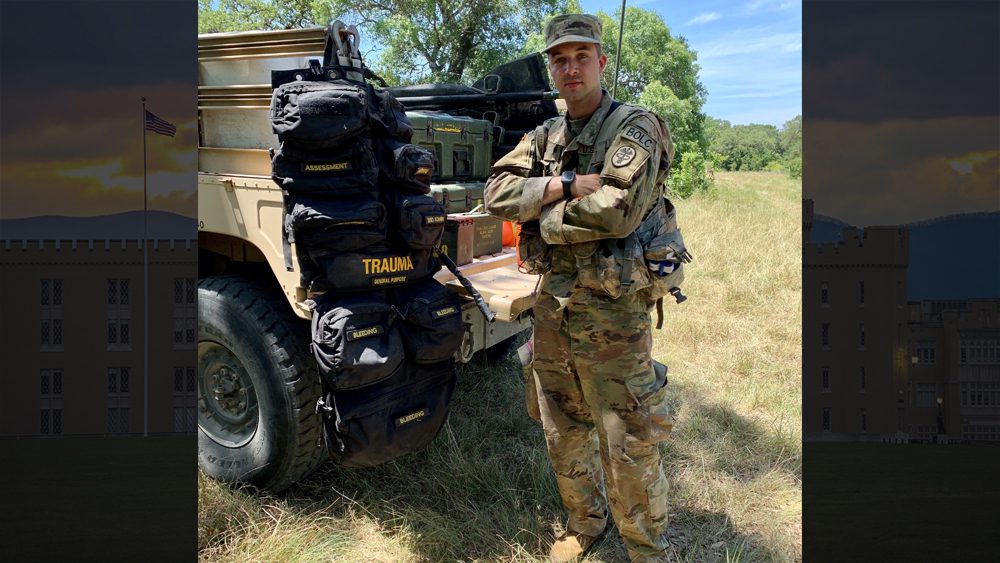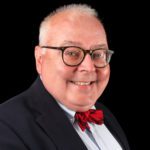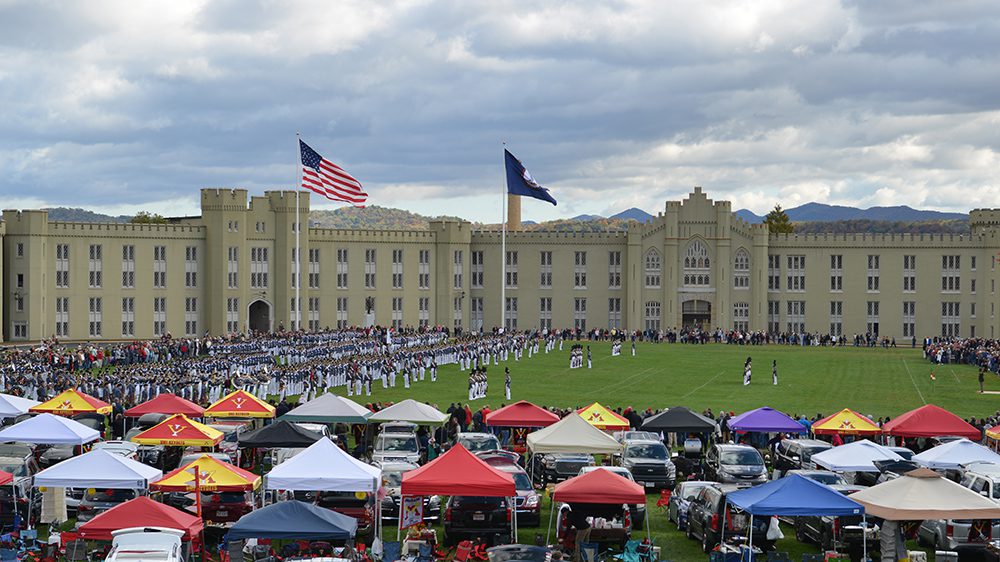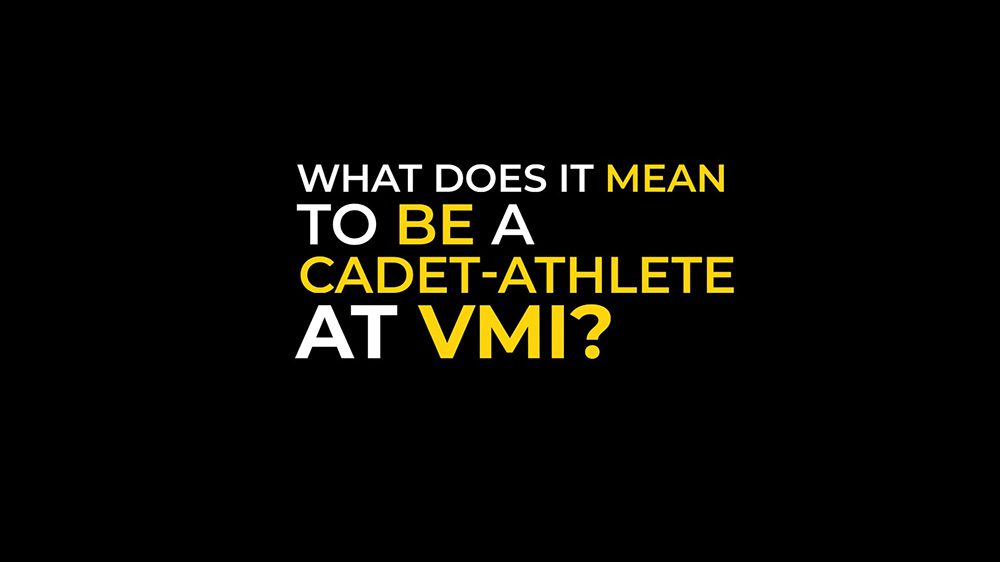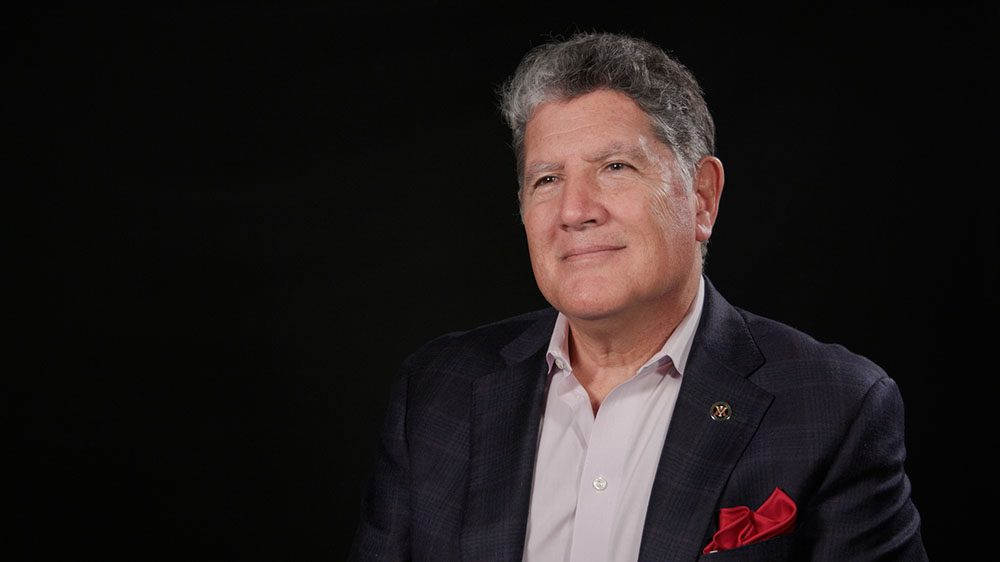When I spoke to Brandon Barbery ’18 in early June 2020, he was on confinement. After finishing the first half of medical school at Virginia Tech in May, he traveled to Fort Sam Houston in San Antonio, Texas, in order to begin his training to be an officer in the Army’s Medical Corps. When he arrived, he discovered that the rules put in place to battle COVID-19 kept him on post and restricted his movements to such places as the mess hall and the classroom. “It seems awfully familiar,” he said.
That Barbery was in that particular situation can be put down to the pandemic. But it also has a basis in decisions he made when he was younger – in fact, before he came to VMI. Arriving at VMI, he had settled on a few things: He wanted to play baseball, pursue a career in medicine and serve in the military. That said, the Institute was not his top choice when he first started considering colleges because, as Barbery remembered, “I was looking to play baseball on a scholarship. I really wasn’t thinking about much outside of that.”
He began to focus on VMI when it was the first school to invite him for an official visit. This interest coincided with some thinking he had done about his potential college experience. “I realized that there are three main aspects to college life – athletics, academics and social life – and, furthermore, that I could only do two of them successfully. I knew that if I chose VMI, there would go the social life – for better or worse – leaving me with the task of succeeding in baseball and in the classroom. In the end, though, it just felt right.”
As to his plans for a medical career, Barbery had a long-standing interest in medicine, but admits that he can’t pinpoint a particular moment he made that decision. According to him, it probably goes back to sports. “From seeing injuries early on and watching people heal and get through the mental side of them captured my interest. Initially, I saw it as a way to improve my mechanics to prevent injury and better develop as a player, but also it helped me to see how healing works and how crucial the mental side of healing is.”
As to the athletic and academic success he was aiming for, he achieved it. As a baseball player – a left-handed pitcher, to be precise – Barbery started all four years and, in 2015, was named to the Southern Conference’s All-Freshman team. During his final season, he was one of the team’s captains and was credited with the win over then-No. 15 Virginia, for which he earned General Shale Southern Conference Student-Athlete of the Week honors. As a student, he excelled as well. He was an Institute Scholar and had a 3.95 GPA when he graduated as a biology major. His honors thesis on neurobiology research related to Parkinson’s disease was published in a scientific journal, and he led VMI’s chapter of Beta Beta Beta, the biology honor society. The Southern Conference awarded him one of 10 postgraduate scholarships in 2018.
Asked what he did to realize this dual success, he replied, “As I said, I set the goals before I matriculated to give 100% effort on the field and 100% effort in the classroom. I built a schedule that incorporated studying every day in order to prepare for things way in advance, and I adhered to it. In a very real sense, consistency was the key.”
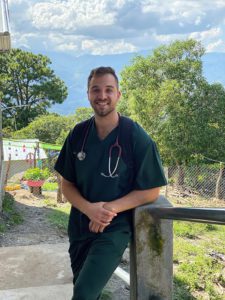
Barbery on a mission trip in Central America. The “rigorous education” he received at VMI prepared him well for medical school, Barbery said. His biggest adjustment was reallocating the time he used to put into baseball.
Barbery also gives a large measure of credit for his achievements to his professors, coaches and fellow cadets. “A big part of my success – and this goes for anyone – is to surround yourself with good people who push you, motivate you to be better and who show you how to do that. As it relates to baseball, I was fortunate to have [coaches] Travis Beazley, Jonathan Hadra [’04] and Sam Roberts [’11]. I also had a great friend and teammate in T.J. Lighton ’15. I looked up to him for his consistent effort and his determination to overcome disappointments. I’ll always remember his advice about the need to ‘go about your business the right way.’”
As to his professors, Barbery has a special appreciation for his academic adviser, Col. James E. Turner Sr. ’65, who served for decades as a professor. “Besides helping me develop my interest in research, Colonel Turner showed me that the importance of developing an enduring intellectual curiosity. As he said, it’s about ‘life-long learning, not cramming.’ He also was wholly invested in establishing a personal connection with all his advisees, and that inspired me to have that type of impact one day.”
With the first half of medical school behind him, he credits what he calls the “rigorous education” he received. “A lot of credit has to go to some of the more challenging courses and professors who taught them, such as Colonel Dick Rowe’s comparative morphology class, Colonel Tappy Jones’ classes in organic chemistry and the physiology courses taught by the late Colonel Tom Baur [’75] – who wouldn’t hesitate to crush me in racquetball.”
“While I may not apply everything I learned in these and other classes to med school,” he continued, “these professors did an amazing job of showing me how to learn new and challenging concepts in a way that ensures that no matter what topic comes up, I am not intimidated by it.”
In fact, Barbery says, the biggest adjustment was reallocating the time he used to put into baseball. He pointed out that, in an average week in season, he would spend four hours a day practicing or in the gym and 10-20 hours a week traveling. Added to that were four to five games a week each of which would take up seven to eight hours. “To balance that with my academics made me develop a strong ‘time discipline.’ So, swapping out some of the baseball time for more study time, while still maintaining time for exercise, was relatively easy.”
As to his decision to serve in the Army, he says, “I always thought, what better way to feel fulfilled than to serve, and by becoming a doctor and also joining the military, it’s a win-win. After my first semester at VMI when I handled the demands of the Rat Line and excelled in the classroom, I had the confidence that I could do it, and that the Army would be a good fit for me.”
Asked why service is important to him, he credited his mother. “Growing up, I watched her always doing for others and putting everyone in the family and even outside of the family before herself. She never said a word to me along the lines of ‘This is something you should do.’ I just watched her volunteer to do everything from being president of the summer swim team and organizing all 200 swimmers, the events and the concessions to designing and making all the uniforms for the local little league. I also saw the joy it brought her and the relationships she was able to build. Her actions said it all, and what they said is truly inspiring.”
Now, back in Blacksburg, Barbery is looking forward to completing the second half of medical school and taking the next step toward becoming an Army doctor. As usual, he will give it his all.
“I believe that everyone has a purpose, and that it is our duty to find it and give it 100%, so that we can be the best version of ourselves and therefore contribute to the best of our ability to society.”
